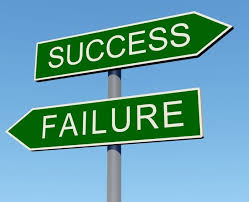 I should start by saying I am an unrepentant would-be innovator myself and like our new PM firmly believe innovation should be the mother of all motherhood issues.
I should start by saying I am an unrepentant would-be innovator myself and like our new PM firmly believe innovation should be the mother of all motherhood issues.
However I do recognize the reality that when given the opportunity nearly all people (in this country) resist the opportunity to embrace new technologies to either improve efficiency or reduce the cost and/or time of performing repetitive tasks.
Why is it so?
(apologies to the late Professor Julius Sumner Miller).
Well there are actually two cohorts (culprits) involved here. One is the potential users themselves. And the other is the owners of the existing technology and/or controllers of the invention or distribution channel.
There is overwhelming evidence that the general population is usually extremely conservative in nature and will not accept any ‘perceived’ risks that might be involved with change and as our Kylie would sing: ‘it’s better the devil you know”.
The academics call this attitude a bias against perceived change.
As far as the existing IP owners are concerned their over-riding concern is nearly always to conserve their rights and attendant cash flow for as long as physically possible.
There is a set game plan here – see table below from my doctoral dissertation – to see my whole thesis click here.
In the end it is only the inventor (would be entrepreneur) who really wants to introduce any change and it is up to him to remove all the obstacles and overcome these often un-surmountable hurdles i.e. get to Phase IV.
Because of all these barriers it is nearly impossible for any would-be entrepreneur to commercialise their invention unless they first surround themselves with the necessary experts and support resources – which emphasise the importance of well funded incubator areas such as Silicon Valley. Georgia Tech in the US realised this was the approach to take over 35 years ago!
Despite what you may read in business magazines or newspapers virtually all the modern day inventors were either ‘rich kids’ and/or had a great team of collaborators from their earliest days – I’m thinking Steve Jobs, Bill Gates et al.
The fact is even with a great team … and venture capital … it nearly always takes many years to prove a new business model.
Perversely, many of the most successful innovators had neither business-training nor even a business plan when they first started. I suspect if university drop-outs Larry Page or Mark Zuckerberg turned up at a modern day business incubator seeking seed finance they would be promptly sent off with a flea in their ears.
Jeff Bezos the visionary founder of share-market darling Amazon (now capitalised on a 1,000 times earning ratio – but still not making a ‘reasonable’ profit after over 20 years in operation) sums it up really well. He maintains: ‘an innovator must be willing to be misunderstood for long periods of time’.
Say no more.

PUBLISHER: Dr Andrew M Connery has been active online since 2001. Andrew completed his PhD at the UOW’s Sydney Business School in 2015 his doctoral dissertation ‘Overcoming Barriers to the Introduction of Perceived Disruptive Innovations in to Rigid Efficient Systems’. A B2B marketing practitioner and SEO/SEM consultant by profession his specialty area is overcoming local search engine bias.
